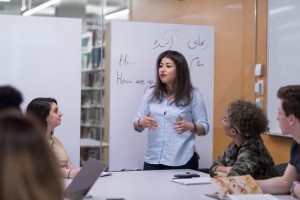Brainy Learning
Thanks to developments in neurosciences and technology we are better able to understand how the brain works and learns. New teaching strategies are being developed to offer hope for better learning and retention. One research group worked with kids from Isfahan, Iran to see how brain-based teaching/training compares to standard teaching methods. The participants consisted of 20 girls age 13-15 from the Center for Intellectual Development of Children and Adolescents, who were then split into two groups. One group would receive the brain-based learning and the other group continued their normal learning methods. The girls were given a test on life skills taught at their facility. Brain-based learning focuses on engaging the students, creating strategies that best fit the student, allowing the students to collaborate with each other, integrating multiple techniques to accomplish a task, integrating material into real-life situations, and constructing a safe/positive environment for all students.
The two groups of students were tested three times: once before the course was taught, then after the course, and a retention test one month subsequent to the last session. The test was developed by researchers to focus on life skills taught in both groups. The group that received the brain-based learning performed significantly better compared to their baseline test and compared to the control group! The pre-test score was an average of 6.30 for the experimental group and 6.50 for the control group. The post-test score was an average of 12.80 for the first group and 6.60 for the control. The retention scores were 12.50 and 5.40. This data shows that brain-based learning techniques improved the students’ learning by an average of 57.4% and retention by 67%. From this research we can develop better teaching techniques and standards for future generations of students!
International Journal of Behavioral Sciences, 2017;10(3), 140-144
Tafti, M. A., & Kadkhodaie, M. S. (2017). The Effects of Brain-Based Training on Learning and Retention of Life Skills in Adolescents. International Journal of Behavioral Sciences, 10(3), 140-144.


